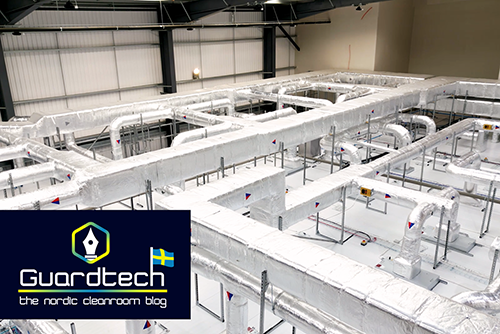The benefits and challenges of designing and installing a ducted plenum for cleanrooms

Benefits of a ducted plenum system:
✅ Enhanced Airflow Control – A ducted plenum ensures uniform air distribution, preventing turbulence and maintaining desired ISO-classified conditions.
✅ Improved Contamination Control – By channelling filtered air directly to critical areas, it reduces the risk of particulate contamination, making it ideal for Pharmaceutical, Biotech and Semiconductor cleanrooms.
✅ Energy Efficiency – Properly designed plenums optimise airflow, reducing energy consumption by eliminating unnecessary recirculation losses and improving HEPA/ULPA filter efficiency.
✅ Regulatory Compliance – Many cleanroom standards, including ISO 14644 and GMP guidelines, require consistent airflow and pressure differentials – a ducted plenum helps achieve these requirements reliably.
Challenges of designing and installing a ducted plenum:
⚠️ Complex Design and Installation – Creating a properly sealed, leak-proof plenum requires meticulous engineering to avoid air bypass and inefficiencies.
⚠️ Higher Initial Costs – Compared to conventional airflow designs, ducted plenums involve higher material and installation costs due to additional ductwork, insulation and sealing requirements.
⚠️ Space Constraints – Cleanroom ceilings must accommodate HVAC ducting, lighting and fire suppression systems, which can be challenging in facilities with limited overhead clearance.
⚠️ Maintenance Challenges – Ensuring continued plenum integrity and performance requires regular inspections for leaks, pressure loss and filter integrity.
Conclusion
A ducted plenum is a highly effective solution for maintaining cleanroom integrity, but it requires careful design, investment, and ongoing maintenance. Despite its challenges, the long-term benefits in contamination control, compliance, and efficiency make it a preferred choice for high-performance cleanrooms.





















